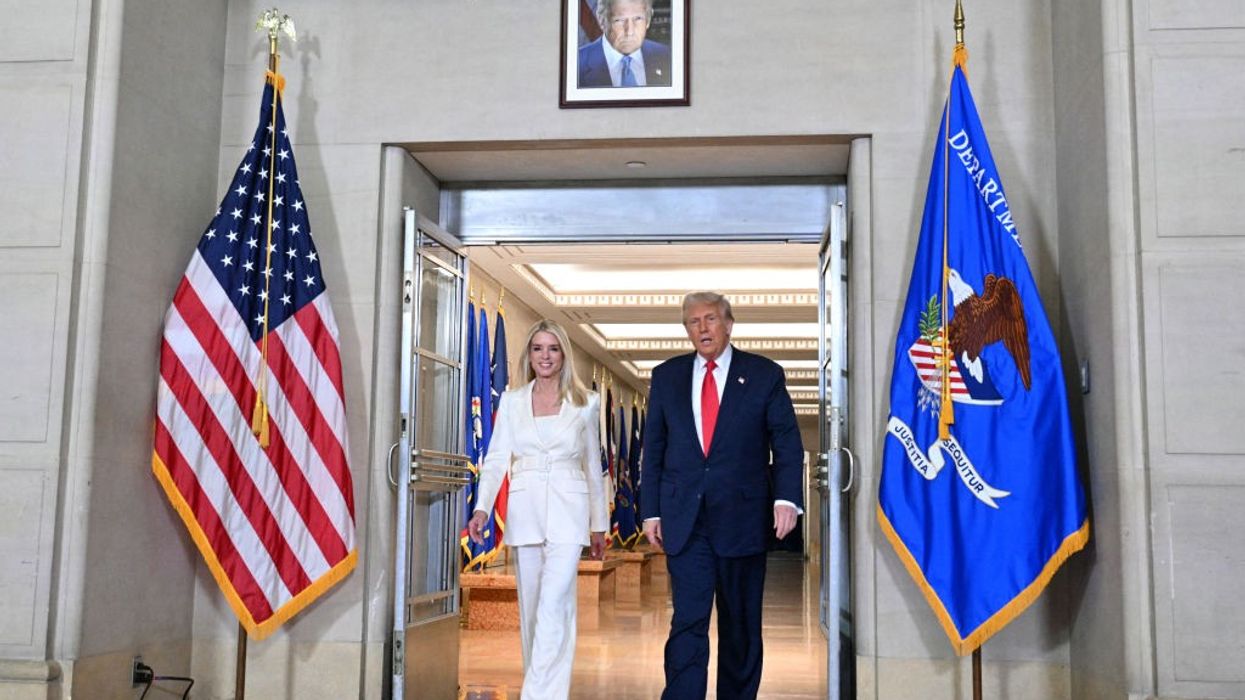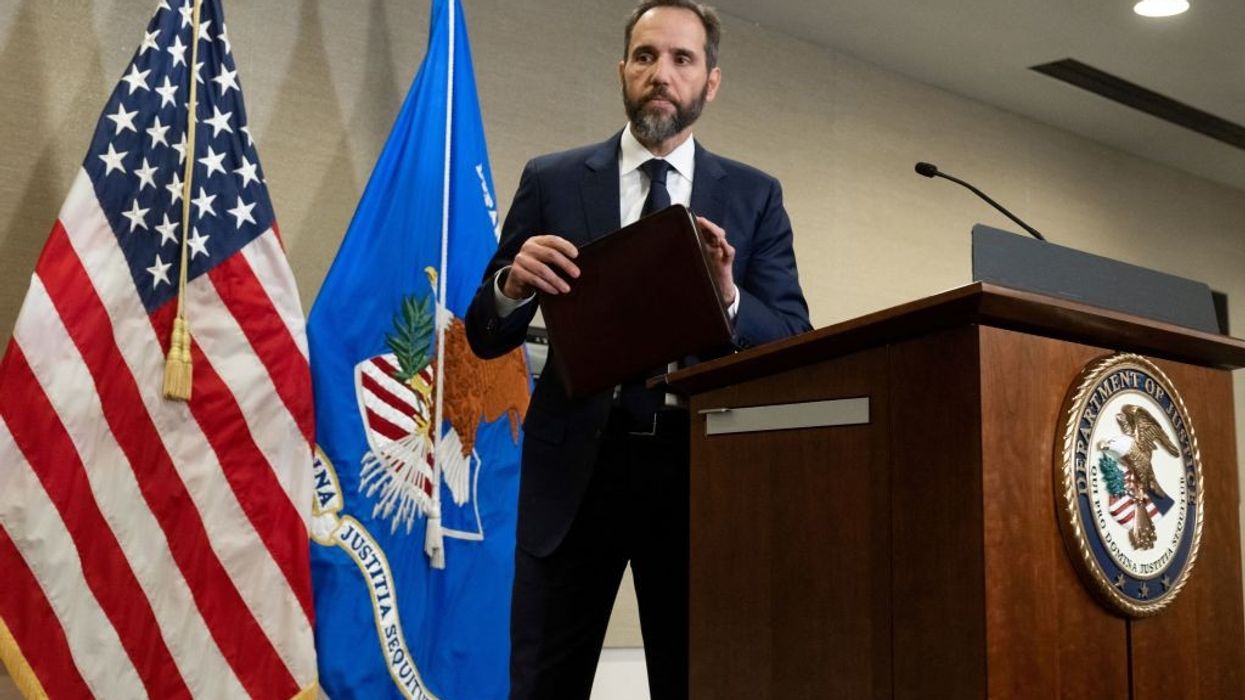'Dark Day for American Democracy': Alarm Over Trump DOJ Speech
"It's increasingly clear that we're entering a modern McCarthy moment," said the head of the ACLU.
U.S. President Donald Trump's campaign-like speech at the Department of Justice on Friday sparked a fresh wave of alarm over the Republican's attacks on his critics, disrespect for the rule of law, and plans for his second term.
Trump—who was convicted of 34 felonies in New York before returning to the White House—slammed his perceived opponents as "scum" and "thugs," called efforts to hold him accountable for alleged criminal activity "bullshit," and declared: "We will expel the rogue actors and corrupt forces from our government. We will expose... their egregious crimes and severe misconduct."
Trump's appearance with U.S. Attorney General Pam Bondi and props promoting drug enforcement displayed his intent to remake the federal judiciary and fueled speculation that he will appoint Florida-based District Judge Aileen Cannon, who dismissed the classified documents case against him, to the nation's Supreme Court.
"Some of the most hallowed halls of justice in America were disgraced by the president of the United States, who has inappropriately installed his personal lawyers and other loyalists into leadership roles at the Department of Justice," said Lena Zwarensteyn, senior director of the fair courts program and an adviser at the Leadership Conference on Civil and Human Rights.
"This reinforces what we knew: The independence of the department has been compromised. During his remarks, the president sought to undermine faith in our judicial system, attacked lawyers who support due process and the rule of law, and made it clear that he expects the attorney general and other leaders to use the full force and resources of the Justice Department to roll back our civil and human rights, target his enemies, and operationalize a worldview that perpetuates white supremacy," she said. "The anti-immigrant rhetoric that both he and the attorney general used was reprehensible and unacceptable."
Zwarensteyn stressed that "in our democracy, Justice Department lawyers—including the attorney general—are the people's lawyers, not the president's lawyers, and they have a sacred duty to enforce our nation's laws without prejudice and with an eye toward justice. The DOJ must be seen by the public—every member, from every community—as fair and independent arbiters of our legal system. Today's appearance at the DOJ by the president, during which he thanked and called out his appointees and personal lawyers, will further tarnish the public's trust of the department and undermine our democracy."
"This cannot be the way that the DOJ—the nation's signature agency for the enforcement of our federal civil rights laws—functions moving forward. We need a DOJ that is working for the people, not the president, and we demand better of our federal government and its leaders," she concluded, calling on the Senate to reject his nomination of Harmeet Dhillon to a key department post.
One of Trump's targets during the speech was Norm Eisen, who was involved with the president's first impeachment and previously served as White House special counsel for ethics and government reform, U.S. ambassador to the Czech Republic, and board chair of the watchdog Citizens for Responsibility and Ethics in Washington (CREW).
Eisen responded with a video on social media, highlighting his work with State Democracy Defenders Action, which he co-founded.
ACLU executive director Anthony Romero said in a statement that "Ambassador Norman Eisen is a great American patriot, with an extraordinary career in public service. He has served the American people for decades inside and outside of government. He has worked to defend democracy at home and abroad."
"It is a sad day when the president of the United States personally attacks an individual of such character," Romero continued. "When charitable organizations like CREW, the ACLU, and others sue the federal government to uphold the law, we are playing a vital role in upholding American values."
The ACLU leader also warned that "it's increasingly clear that we're entering a modern McCarthy moment. When the government is targeting a former ambassador, a legal permanent resident, law firms, and even universities and treating them like enemies of the state, it is a dark day for American democracy."
Since Trump returned to power in January, his administration has not only empowered billionaire Elon Musk to dismantle the federal government but also targeted news outlets, student protesters, and education institutions while signaling a willingness to ignore court orders—fueling calls for Congress to hit him with a historic third impeachment.


